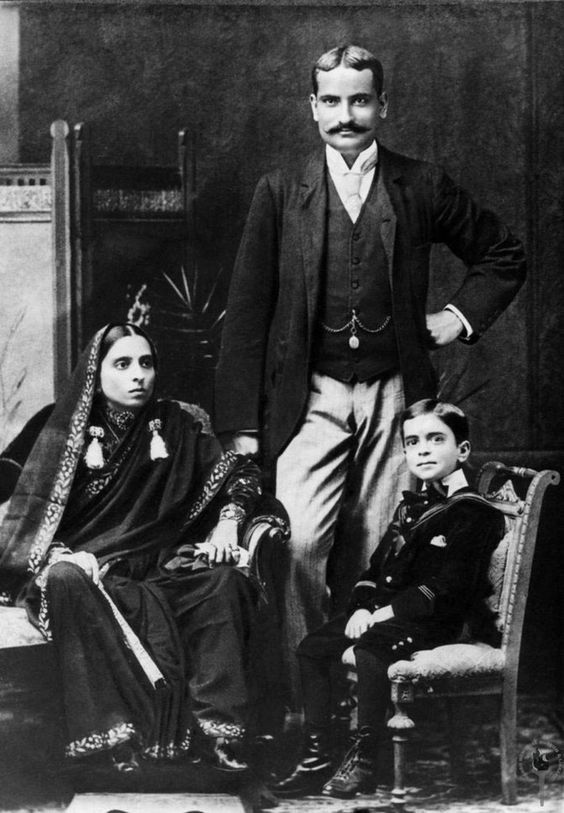Swarup Rani Nehru: 5 Powerful Lessons of Empowerment and Social Reform
Swarup Rani Nehru, a significant yet often overlooked figure in Indian history, was a woman ahead of her time. While she is primarily known as the mother of Jawaharlal Nehru, India’s first Prime Minister, her contributions to the social and educational landscape of India are monumental. Swarup Rani’s life was defined by her steadfast commitment to education, social reform, and women’s empowerment. Her legacy continues to impact society in profound ways, inspiring generations of individuals, especially women, to pursue education and social change.
Early Life and Background
Swarup Rani Nehru was born in 1879, in Kashmir, into a traditional family. She married Motilal Nehru, a prominent lawyer and political figure, when she was still quite young. Together, they had three children, including their son Jawaharlal Nehru. As the wife of a well-established lawyer, Swarup Rani had access to education, which was not common for women of her time. She was an intelligent and forward-thinking woman, far ahead of her time in terms of advocating for women’s rights and social justice.
Despite being a wife and mother, Swarup Rani did not limit her role to just domesticity. She actively supported her husband’s career, took care of her children, and participated in various social activities. Swarup Rani was an avid believer in the power of education and sought to improve the lives of others around her, particularly by uplifting women and marginalized communities.
Social Reform and Advocacy for Women’s Empowerment
Swarup Rani Nehru is best known for her advocacy for women’s empowerment and her commitment to social reform. In a society where women were often confined to the household, she broke free from traditional norms and emphasized the importance of education and self-sufficiency for women.
Swarup Rani believed that the upliftment of women was key to the upliftment of the entire society. She encouraged her daughter, Vijaya Lakshmi Pandit, and other women in her circle to pursue higher education and be actively involved in society. She understood that a woman’s role could extend beyond the domestic sphere and that true progress could only be achieved when women were empowered to contribute to various sectors of life.
She played a key role in supporting women’s education and was a proponent of opening schools for girls, at a time when the idea of educating women was revolutionary. Swarup Rani’s belief in equal access to education laid the foundation for the social changes that would soon follow in India.
Contributions to Education and Social Upliftment
Swarup Rani Nehru had a deep understanding of the transformative power of education. Her focus on modern education was not just about academic achievement; it was about creating a platform for individuals to think critically and engage meaningfully with the world around them.
Her belief in social equality extended beyond education. Swarup Rani Nehru supported many initiatives aimed at reducing poverty, improving healthcare, and addressing caste discrimination. Her work had a lasting impact on society, particularly in the lives of the most marginalized communities.
At a time when education was a privilege for only the elite, Swarup Rani pushed for reforms that allowed for a broader and more inclusive education system. She also encouraged the younger generation, particularly her son Jawaharlal Nehru, to value education and engage with global ideas. Her emphasis on critical thinking and modern education made a significant impact on the Indian independence movement and its future.
Key Significance in Today’s Society
Swarup Rani Nehru’s influence is still deeply felt today. Her life reminds us that individual action can contribute to societal transformation. Here are some key takeaways from her life that remain highly relevant:
- Empowerment Through Education: Swarup Rani Nehru’s belief in the power of education paved the way for a more inclusive educational system in India. She understood that education, especially for women, was the key to transforming society. Today, as we see increased efforts toward girls’ education and gender equality, her work continues to inspire activists and educators worldwide.
- Social Justice and Equality: Swarup Rani Nehru’s commitment to reducing social inequalities, especially those stemming from the caste system, is a reminder that social reform is essential for true national progress. Her activism for the marginalized groups continues to be relevant as society strives for more inclusive and equitable structures.
- Vision for Women’s Rights: Swarup Rani Nehru was a visionary who sought to uplift women through education, self-empowerment, and active participation in societal development. Today, her vision continues to resonate in the ongoing fight for women’s rights and gender equality.
- Family and Community Leadership: Swarup Rani Nehru’s leadership extended beyond her immediate family. She led by example, fostering strong community ties and advocating for a more inclusive society. Her role in the Indian freedom struggle and social activism laid the foundation for the country’s future political, educational, and social landscape.
Frequently Asked Questions (FAQs)
Q1: What were Swarup Rani Nehru’s contributions to Indian society? Swarup Rani Nehru was a social reformer who focused on women’s education, empowerment, and social equality. She played a crucial role in advocating for educational reforms and empowering women, making significant strides in a society that restricted their freedom.
Q2: How did Swarup Rani Nehru influence Jawaharlal Nehru’s thinking? Swarup Rani Nehru instilled in her son, Jawaharlal Nehru, a deep sense of education, social justice, and the importance of empowering women. Her beliefs in equality and social reforms greatly influenced his political thinking and vision for India.
Q3: What is Swarup Rani Nehru’s legacy? Swarup Rani Nehru’s legacy lies in her unwavering dedication to education, empowerment, and social reforms. She played a key role in advancing women’s rights, educational equality, and social upliftment, and her efforts continue to inspire generations to work toward a more just and inclusive society.
Conclusion
Swarup Rani Nehru was an extraordinary woman whose contributions to education, women’s empowerment, and social justice laid the groundwork for India’s future progress. Despite being overshadowed by her son’s political legacy, Swarup Rani’s work is indispensable in shaping the India we know today. Her advocacy for women’s rights, education, and equality continues to inspire people across the world, encouraging us all to work towards a more just and inclusive future.
By supporting the values of empowerment, education, and social equality, Swarup Rani Nehru’s life offers invaluable lessons that continue to resonate in today’s global society. Her dedication reminds us that each individual has the power to create lasting change, making the world a better place for future generations.











психолог по семейным отношениям онлайн